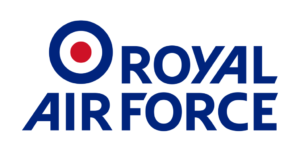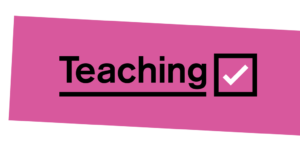
Cloud Computing careers guide
If you’re great with computers, working with cloud computing offers exciting and varied career options at the cutting edge of business technology solutions.
How much money can you earn as a cloud computing engineer?
These LMI Job Trends give you a sneak peek of how much you could earn starting out for this career, and how much your salary could grow with experience.
Average salary for cloud computing jobs
Recent labour market information says you can earn between £40,000 and £60,000 a year as a cloud computing engineer.
Your starting salary as a cloud computing engineer can vary because of factors like level of experience, training, or location. It will increase over time as you build skills, knowledge and experience.
Digital Career FAQs & Insights

Is there something you’d like to know about digital careers? Maybe we can help!
Skills you need to become a cloud computing engineer
Useful skills to put in your CV:
- Exceptional computer skills. You’ll need to know your way around many different computing programmes and ideally know one or more programming languages
- Specific platform knowledge. Depending on the exact role and company you’re applying for, knowledge of the particular systems used will be beneficial
- Strong communication skills, both verbal and written
- An understanding of computer networks and databases
- An understanding of data protection and familiarity with data protection legislation
- A flair for problem-solving
- Logical, ordered, and analytical thinking
- The ability to work under your own motivation
Top Skills-boosting Tips
Practice programming and coding as much as you can. At a minimum, you will likely need to be proficient in at least one programming language to land a cloud computing job. According to GeeksforGeeks, a huge educational resource for current and aspiring IT professionals, the five most useful languages are Python, Golang, Ruby, Java, and ASP.NET.
How Do You Get These Skills?
Vocational qualifications and work experience will help you build these skills over time.

Build Your Skills With the FREE Young Professional Programme
What Qualifications & Training Do You Need For Cloud Computing Careers?
School, college and training
It is possible to get an entry-level cloud computing job directly from school if you have the right knowledge and skills. However, this industry is demanding and competitive, so further education or training will set you up well for a cloud computing career. At a minimum, a good level of secondary education (typically including GCSEs in English and Maths at grade 4/grade C or above) will be required.
A-Levels
A-Levels are academic qualifications that you take after GCSEs, usually from ages 16-18. A-Levels such as Computer Science, Information Technology, Mathematics, and Further Mathematics are all good choices for anyone interested in a cloud computing career.
T-Levels
T-Levels are a choice for learners after GCSEs alongside apprenticeships and A-levels. The two-year T-Level course in Digital Business Services can be a great starting point if you’re interested in cloud computing.
BTECs
As an alternative to A-Levels, you can do BTECs from the age of 16. New BTEC courses in Cloud Computing were introduced in 2020. There are also more general IT BTECs you can take in preparation for a more specialised course later on.
- Level 2 Certificate in Information & Communications Technology (ICT)
- Level 3 Certificate in Programming
- Level 3 Foundation/Extended Diploma in Computing
- Level 3 Specialist Qualification in Cloud Services
- Level 4 Certificate in Cloud Computing
- Level 5 Diploma in Cloud Computing
You’ll normally need 2 or more GCSEs at grades 9-3 (A*-D) or equivalent for a Level 2 course. If your qualifications are lower than this, you’ll most likely start on a Level 1 course. Level 4 and 5 courses typically require higher qualifications for admission, such as a BTEC at a lower level or A-Levels.
Short Courses
Short courses are a great way to gain more knowledge about a specific sector or job role in a short space of time. Short courses are offered by many colleges, universities, and other organisations. Some are studied in-person, others via an online or blended learning approach.
For example, Teesside University offers a 12 week course in IoT and Cloud Systems, UCL offers a 9 week course with optional exam in Cloud Data Centres and Edge Computing, and UWE Bristol offers a 12 session professional course in Cloud Computing.
Apprenticeships
An apprenticeship is a scheme where you train while earning a starting salary. With an apprenticeship (or advanced apprenticeship) you’ll have a paid job with an employer that includes structured training and learning. This training leads to an official qualification that’s recognised by employers as an industry standard.
You can take an apprenticeship programme to train for jobs such as Cloud Security Engineer, Cloud Support Specialist, Cloud Solutions Engineer, Devops Engineer, and many more. Apprenticeships take one to five years to complete, depending on your individual course of study, and combine classroom learning with on-the-job experience.
University degrees and graduates
Not all cloud computing jobs require a degree, but many do. Therefore, going to university and gaining a relevant Bachelor’s (undergraduate) Degree can help you to get a foot in the door and land a great cloud computing job.
You can do Bachelors (undergraduate) Degrees in Cloud Computing. Subjects such as Computer Science are also great choices.
UCAS has more information on degree courses and entry requirements.
Masters Degrees
If you already have a Bachelors Degree or equivalent qualification, you can get a more advanced degree called a Masters of Science (MSc) in Cloud Computing. These courses take 1-3 years, depending on whether you study part-time or full time. Many can also be studied online.
Career Progression
There are numerous different ways your Cloud Computing career can go, depending on what pathway you choose to take. You could grow into roles such as Cloud Software Engineer, Cloud Architect, or Cloud Developer. You could also take on a management role at your company, supervising a team of cloud computing workers.
Cloud computing skills are hugely in demand across a wide range of industries. As an alternative to working for a company, you could go freelance or set up your own business. This allows you to charge higher hourly rates and choose the projects you’d like to work on.
What Work Experience Do You Need For Cloud Computing Jobs?
Work Experience Tips
If you want to work in cloud computing, try to get work experience in an IT or programming role. This could be from a part-time job, freelance work, a work experience placement as part of your school, college, or university programme, or an internship. Anything that allows you to show off your great computing skills will be an advantage. You will also need to show that you are self-motivated and able to work reliably without constant oversight. Consider looking for internships and work experience placements with IT companies, sales or marketing environments, government agencies, or consultancies.
Examples of relevant work experience include:
- Work shadowing (even if it’s just for a day)
- Work placements in a company
- Work experience placements on a college or university course
Volunteering Tips
Voluntary work of any kind looks great on a CV, but it’s even better if you can get voluntary experience directly relating to your cloud computing career ambitions.
Consider volunteering to do IT work, preferably jobs that involve programming, for organisations or causes you care about. This might be for a group or club, a local organisation, or a charity. Remember to keep a record of all the work you do. This will allow you to build up a portfolio to show prospective employers. It is also worth doing everything you can to build your skills and knowledge in your spare time. There are many free and affordable resources you can use to learn more about computer science, programming, and cloud computing. Look for online or in-person courses, articles, videos, and books from people working within the industry.
What Does A Cloud Computing Engineer Do?
What do cloud computing careers involve?
Cloud Computing roles can take many different forms, and what you do each day will vary depending on the exact nature of your role. You’ll work behind a desk, but the work can still be varied and exciting.
Example daily job responsibilities
- Designing and building cloud applications
- Troubleshooting and fixing problems in cloud applications
- Maintaining cloud security for your company
- Monitor and maintain cloud application performance
- Researching and acquiring suitable cloud applications for your company’s needs
- Ensure that relevant legislation is followed
- Collaborate with other team members both within and outside the cloud computing specialism
- Work with other teams to identify and implement appropriate cloud solutions
- Provide guidance and support to colleagues on cloud computing issues
How To Find Cloud Computing Jobs: Next Steps
To find jobs for young people in this role, search on jobs boards for early career roles and opportunities with these words in the title:
- Junior Cloud Consultant
- Junior DevOps Engineer
- Cloud Developer
- Systems Engineer
- Systems Administrator
You can also apply directly to organisations for open positions. Check the Jobs or Careers page on the website of the company or companies you’d like to work for, and follow their instructions to apply.
Take a look at our database of local opportunities to see if there are any relevant jobs, work placements, or careers events and workshops to help you get started.
Get Into Digital Careers With Youth-Friendly Employers
These employers and organisations are here to help. They care about your potential and desire to learn, not just your qualifications and experience. They may be able to offer traineeships, apprenticeships, graduate schemes, first jobs, careers advice, wellbeing support and much more.
Digital Career Tips & Opportunities
Digital Career Guides
View job descriptions with average UK salary, useful qualifications and a variety of routes into this career.
See All Our Youth-Friendly Employers
London tech careers are in YOUR reach.
Salary? Jobs? Training? You got it. No experience? No problem. You've got the power. We'll give you the support!

























YES! I Want More Free Careers Help...
So what are you waiting for? Grab your future.































